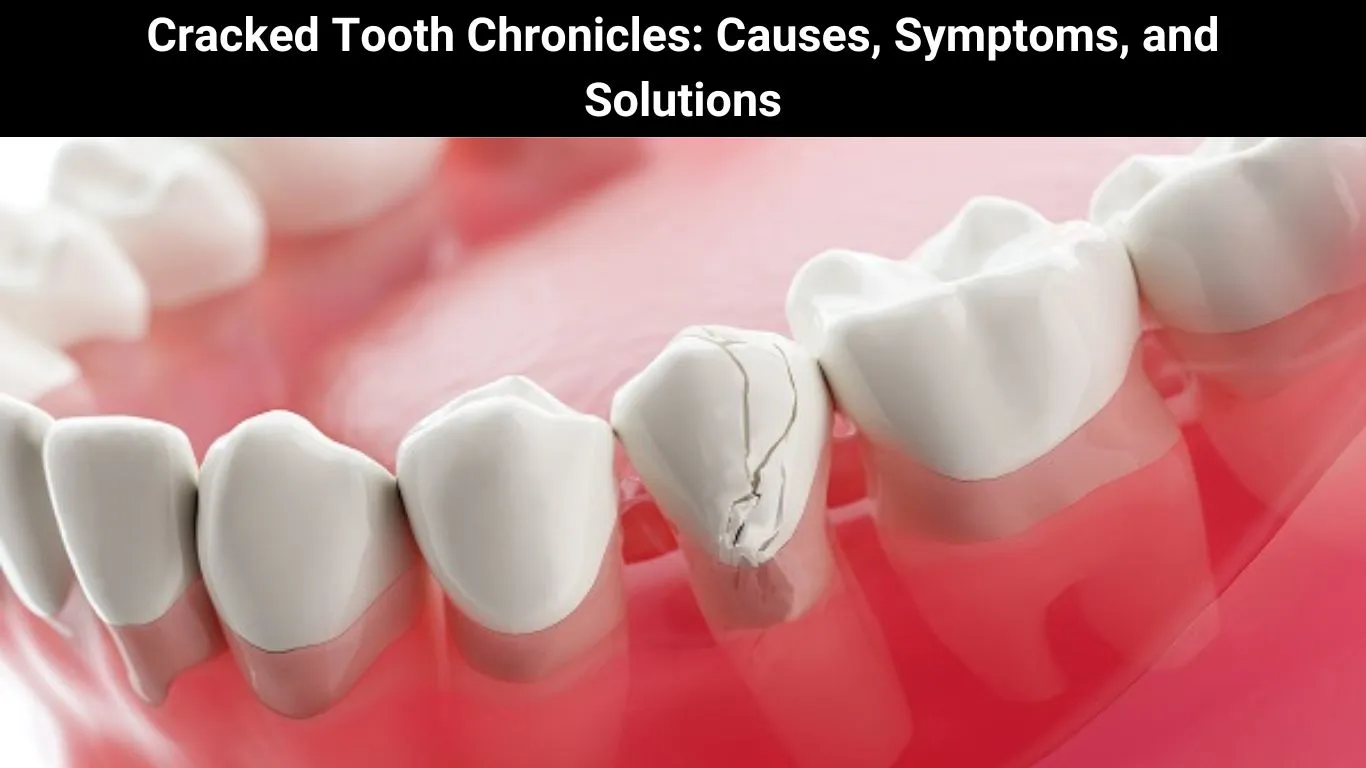A cracked tooth can be a silent yet agonizing dental issue that often catches people by surprise. Understanding the causes, recognizing symptoms, and exploring viable solutions are crucial steps toward maintaining optimal oral health.
In this comprehensive guide, we delve into the world of cracked teeth to shed light on the causes, symptoms, and effective solutions for this common dental concern.
Causes of Cracked Teeth
Biting Force and Habits:
One of the primary causes of cracked teeth is excessive biting force, especially when chewing hard substances like ice, nuts, or unpopped popcorn kernels. Additionally, habits such as clenching or grinding teeth (bruxism) can contribute to the development of cracks over time.
Trauma and Accidents:
Accidents or trauma to the face can result in cracked teeth. This includes incidents like falls, sports injuries, or car accidents. The force of impact can lead to fractures that may not always be immediately visible but can cause significant damage.
Temperature Extremes:
Rapid temperature changes, such as consuming hot beverages followed by cold ones, can cause teeth to expand and contract. Over time, this thermal stress can lead to the formation of cracks, particularly in teeth with existing structural weaknesses.
Symptoms of Cracked Teeth
Pain While Chewing:
One of the earliest signs of a cracked tooth is pain while chewing, especially when biting down on hard or crunchy foods. The intensity of the pain can vary, ranging from mild discomfort to sharp, shooting pains.
Sensitivity to Hot or Cold:
Cracked teeth often result in increased sensitivity to temperature changes. Individuals may experience heightened discomfort when consuming hot or cold foods and beverages, as the cracks expose the sensitive inner layers of the tooth.
Intermittent Pain:
Cracked teeth can cause intermittent pain that comes and goes. This sporadic discomfort can make it challenging to pinpoint the exact source of the problem, leading individuals to delay seeking dental care.
Swollen Gums:
In some cases, cracked teeth may lead to localized swelling of the gums around the affected tooth. This is often a sign of inflammation or infection, highlighting the urgency of seeking professional dental attention.
Solutions for Cracked Teeth
Dental Bonding:
For minor cracks, dental bonding can be a viable solution. In this procedure, a tooth-colored resin is applied to the cracked tooth and bonded with a special light, restoring its appearance and strength.
Dental Crowns:
In cases of more extensive cracks, dental crowns may be recommended. Crowns are custom-made caps that cover the entire visible portion of the tooth, providing protection and reinforcement.
Root Canal Therapy:
If the crack extends into the pulp of the tooth, root canal therapy may be necessary. This procedure involves removing the damaged pulp, cleaning the interior of the tooth, and sealing it to prevent further infection.
Extraction and Replacement:
In severe cases where the crack is irreparable, extraction of the affected tooth may be the only option. This can be followed by tooth replacement options such as dental implants in Rochester, MI, or bridges to restore function and aesthetics.
Custom Mouthguards:
For individuals with bruxism or habitual teeth clenching, custom-made mouthguards can help prevent further damage by providing a protective barrier between the upper and lower teeth.
Conclusion
Taking care of our dental health is vital to maintaining a pain-free and aesthetic smile. Understanding the causes of cracked teeth, recognizing the symptoms, and seeking timely dental care are crucial steps in addressing this common dental issue. Thankfully, with modern dental interventions, including dental bonding, crowns, and root canal therapy, it’s easier than ever to restore both function and aesthetics.
If you’re experiencing any dental pain or suspect a cracked tooth, don’t hesitate to schedule a dental evaluation to help prevent further complications and ensure your long-term dental health. Together, with a proactive approach to dental health, we can all smile confidently and worry-free.
